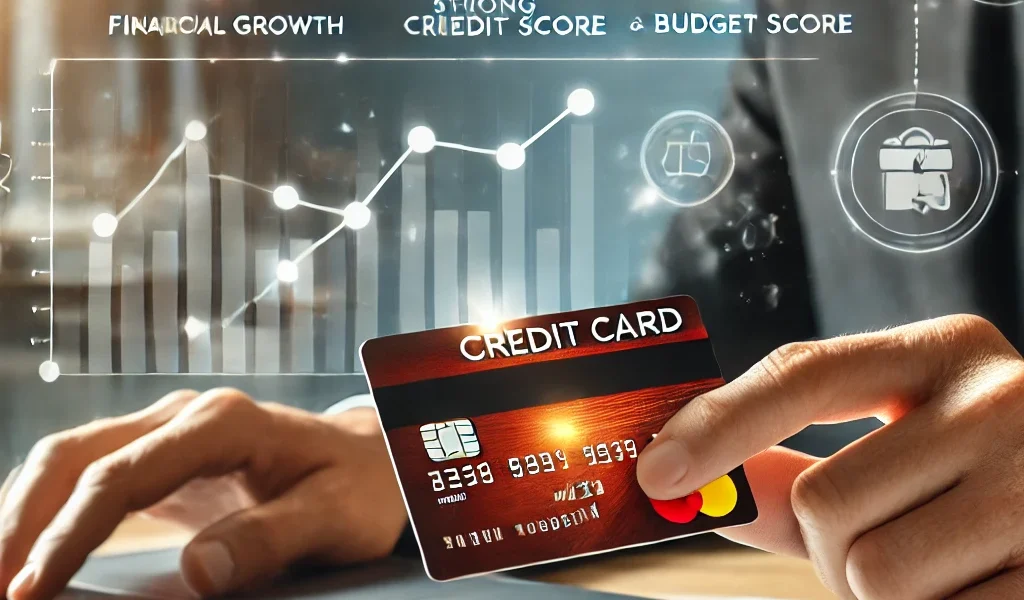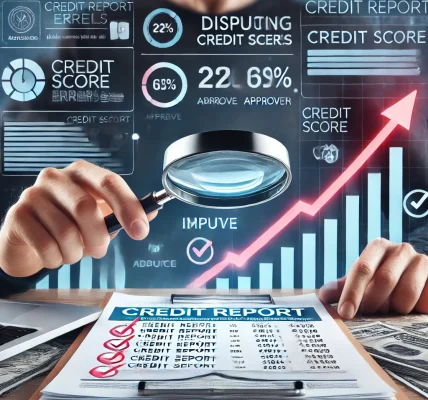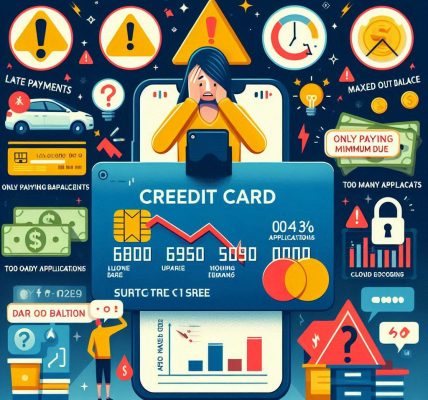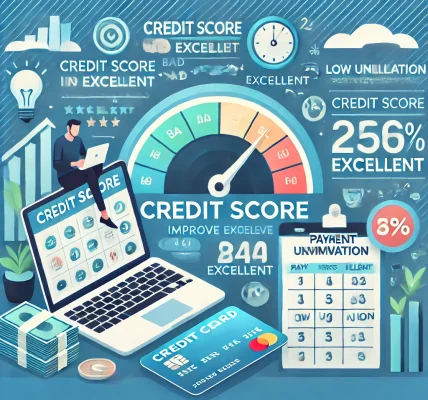Introduction
Credit cards can be powerful financial tools when used responsibly. They help build your credit history, improve your credit score, and offer financial flexibility. However, misusing them can lead to debt, high-interest payments, and a damaged credit profile.
This guide will walk you through the best practices for using credit cards wisely, debunk common myths, and provide actionable steps to build a strong credit profile without falling into financial traps.
Understanding How Credit Cards Impact Your Credit Score
Your credit score is determined by several factors, and using a credit card wisely can positively influence it. Here’s how:
- Payment History (35%) – Making on-time payments is crucial for maintaining a high credit score.
- Credit Utilization (30%) – Keeping your credit utilization low (below 30% of your credit limit) helps maintain a strong score.
- Length of Credit History (15%) – The longer your accounts remain open and in good standing, the better.
- Credit Mix (10%) – A mix of credit types (credit cards, loans, etc.) improves your score.
- New Credit Inquiries (10%) – Applying for multiple credit cards in a short period can hurt your score.
Smart Strategies for Using Credit Cards Responsibly
1. Pay Your Balance in Full Every Month
One of the best ways to use a credit card responsibly is to pay your full statement balance every month. This helps you avoid interest charges and ensures you don’t carry unnecessary debt.
Tip: Set up automatic payments or calendar reminders to ensure you never miss a due date.
2. Keep Your Credit Utilization Low
Credit utilization refers to how much of your available credit you’re using. High utilization can signal financial distress to lenders and negatively impact your credit score.
Tip: Keep your utilization below 30%, but ideally under 10% for maximum score benefits. If your credit limit is $5,000, aim to use no more than $500 at a time.
3. Choose the Right Credit Card
Different credit cards serve different purposes. Some offer rewards, while others help build credit. Choose a card that aligns with your financial goals.
Types of Credit Cards:
- Cashback Cards – Offer money back on purchases.
- Travel Rewards Cards – Earn points for flights, hotels, and more.
- Secured Cards – Ideal for beginners or those with poor credit; requires a deposit.
- Low-Interest Cards – Good for those who may carry a balance occasionally.
4. Avoid Opening Too Many Cards at Once
Applying for multiple credit cards within a short period can lower your credit score due to multiple hard inquiries. It can also tempt you to overspend.
Tip: Only apply for new credit when necessary and space out applications to minimize the impact on your credit score.
5. Use Your Card for Everyday Purchases and Pay Immediately
Using your credit card for small, everyday purchases and paying off the balance immediately helps build your credit history without accumulating debt.
Example: Pay for groceries, gas, or streaming services with your credit card, then pay off the balance the same week.
6. Set Up Alerts and Track Your Spending
Keeping track of your spending ensures you stay within budget and avoid overspending.
Tip: Use your bank’s mobile app to set up spending alerts, or use budgeting apps like Mint or YNAB.
7. Take Advantage of Credit Card Rewards Responsibly
Many credit cards offer cashback, travel points, and other rewards. However, it’s essential to use them wisely and avoid spending just to earn rewards.
Tip: Use rewards cards for necessary expenses and pay the balance in full. Never overspend just to earn points.
8. Don’t Close Old Credit Accounts
Closing old credit cards can shorten your credit history and increase your credit utilization, both of which can lower your credit score.
Tip: If you don’t use an old card often, keep it open and make a small purchase every few months to keep it active.
9. Watch Out for Fees and High-Interest Rates
Some credit cards come with high-interest rates and fees that can add up quickly if you carry a balance.
Tip: Always read the terms and conditions before signing up. Look for low-interest rates, no annual fees, and fair penalty policies.
10. Report Lost or Stolen Cards Immediately
If your credit card is lost or stolen, report it to your issuer immediately to prevent unauthorized charges.
Tip: Most credit card companies offer fraud protection, but quick action can save you from potential losses.
Building a Strong Credit Profile: Step-by-Step Plan
Follow these steps consistently to establish and maintain a solid credit profile:
- Get a Starter Credit Card – If you’re new to credit, begin with a secured or student credit card.
- Make Small Purchases Regularly – Charge small amounts and pay off in full each month.
- Keep Utilization Low – Stay under 30% of your credit limit, preferably below 10%.
- Pay On Time – Set up autopay to ensure you never miss a due date.
- Monitor Your Credit Report – Check your credit report regularly at AnnualCreditReport.com for errors and fraud.
- Upgrade to Better Cards Over Time – As your credit improves, switch to cards with better rewards and benefits.
- Avoid Debt Traps – Don’t spend more than you can afford to pay off each month.
- Limit Hard Inquiries – Apply for new credit only when necessary.
- Keep Old Accounts Open – Maintain a long credit history for a stronger score.
- Stay Educated – Keep learning about credit and personal finance to make informed decisions.
Common Credit Card Myths Debunked
Myth: Carrying a Balance Helps Your Credit Score
Fact: Carrying a balance and paying interest does not improve your score. Paying in full is always the best strategy.
Myth: You Need to Use Your Credit Card Every Month
Fact: While occasional use helps keep an account active, you don’t need to use it every month to maintain a good score.
Myth: A Higher Credit Limit is Dangerous
Fact: A higher credit limit can actually benefit your credit score by lowering your utilization ratio—if you don’t max it out.
Conclusion
Using credit cards wisely is key to building a strong credit profile. By making on-time payments, keeping your utilization low, and avoiding common credit traps, you can improve your financial health and open doors to better loan terms and financial opportunities.
Remember, responsible credit use is a long-term commitment. Stay informed, manage your credit wisely, and you’ll reap the benefits of a strong credit profile.
Legal Disclaimer: This article is for informational purposes only and does not constitute legal or financial advice. Always consult with a professional before making financial decisions.




